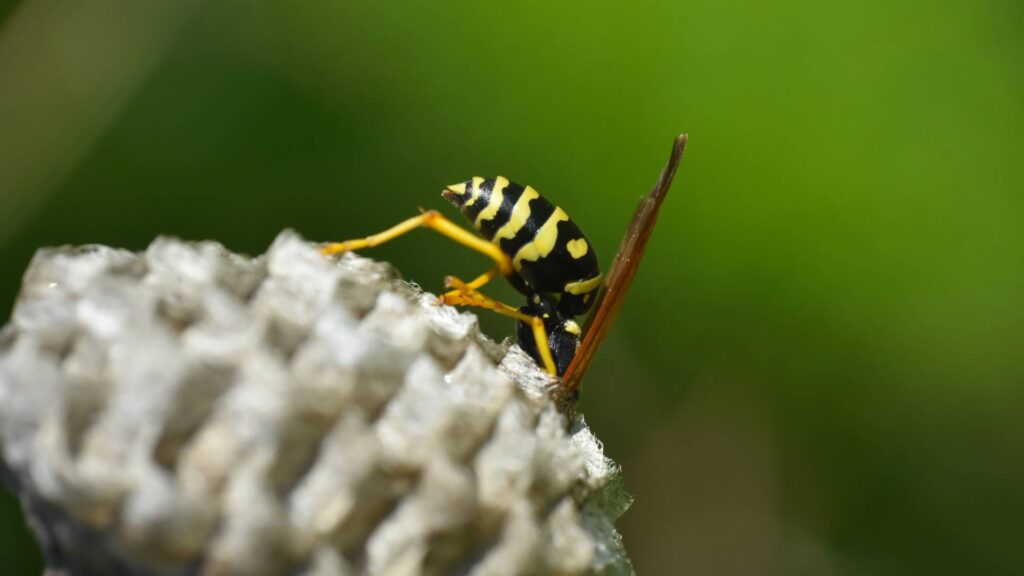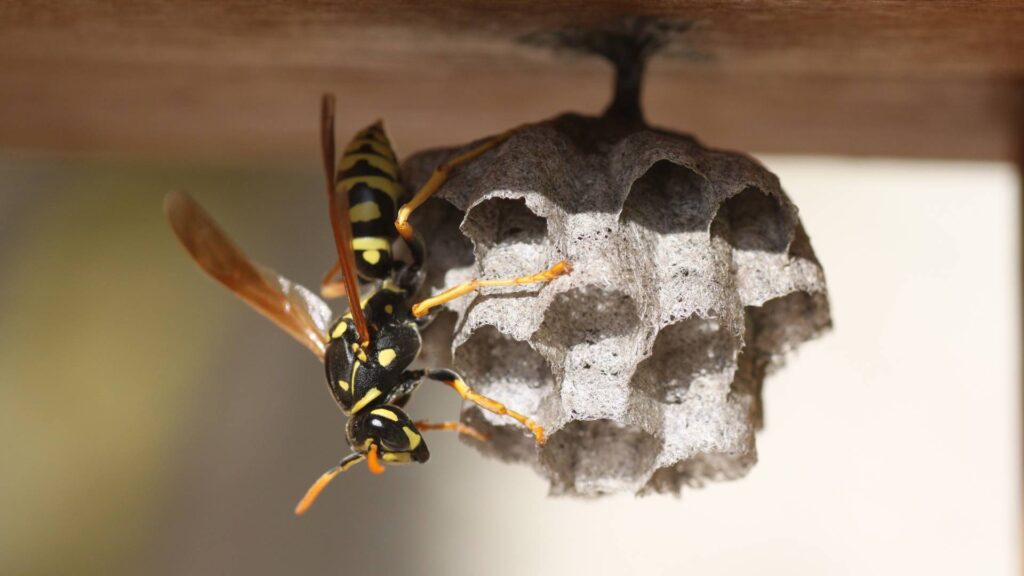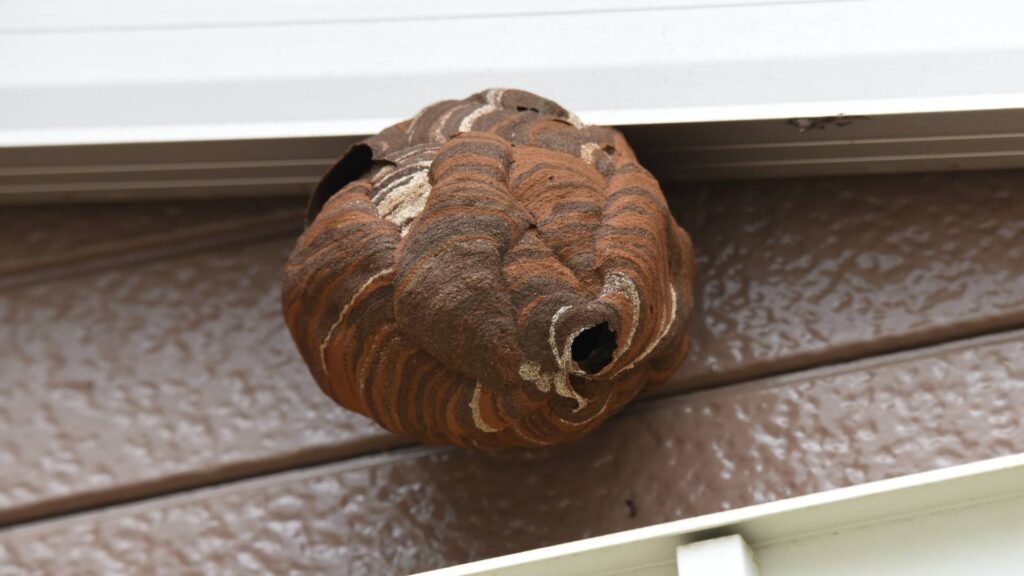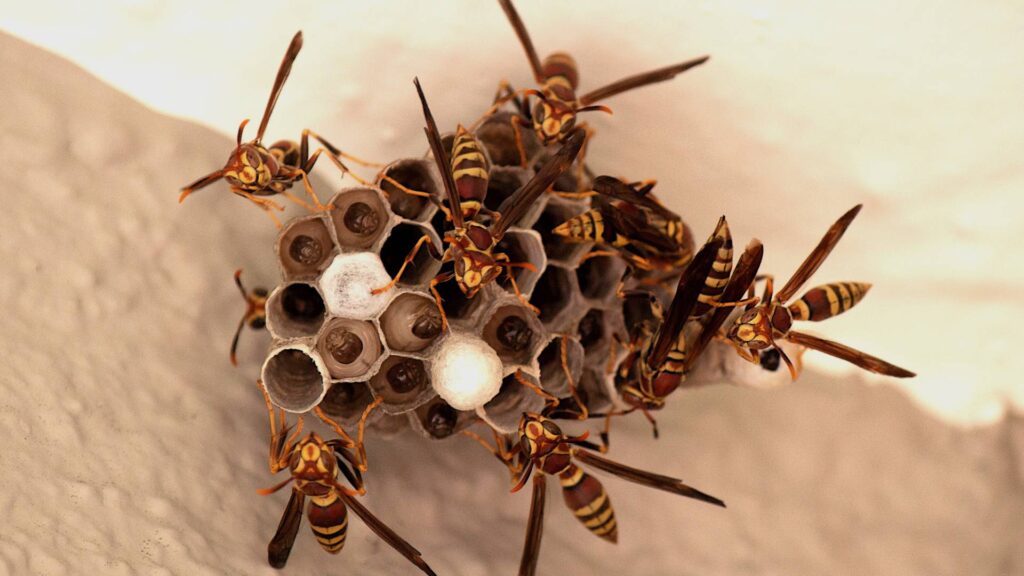Table Of Content
ToggleAs a pest control expert, I understand the frustration of unwelcome wasp visitors. Their buzzing presence can disrupt outdoor relaxation and turn picnics into battles.
Luckily, you have options beyond running for cover! This guide explores safe and effective home remedies for wasp removal, empowering you to take control of your outdoor space.
Before diving into battle, a crucial first step exists: identifying the enemy.
Knowing the type of wasp you’re facing is essential for choosing the right removal strategy. Here’s a quick guide:
Understanding these distinctions is important. Bees are vital pollinators, and harming them should be avoided whenever possible. Wasps and yellow jackets, on the other hand, can be aggressive and pose a stinging threat. Understanding the characteristics of different pests is crucial, especially when dealing with the hardest household pests to get rid of.
Discover safe wasp control solutions for your home.

While removing a wasp nest is the ultimate goal, understanding wasp behavior can help you avoid attracting them in the first place and minimize the risk of stings. Here are some key points:
Nature offers some powerful tools to deter wasps from your property. Here are two effective options, along with some additional tips:
Soap and Water Spray: This simple concoction disrupts wasps’ respiratory system. Mix 2 tablespoons of dish soap with a quart of water in a spray bottle. Apply liberally to the nest entrance or areas with frequent wasp activity. Caution: Avoid direct contact with eyes and wear gloves when handling.
Soap Spray Variations: For extra punch, consider adding a tablespoon of cayenne pepper or a few drops of citrus essential oil (lemon, orange, or grapefruit) to the soap and water mix. Important Note: These variations can irritate skin and eyes, so use with even greater caution and ensure proper ventilation when applying.
Placement is Key: When using any repellent spray, focus on areas with high wasp activity, like trash cans, compost bins, or outdoor eating areas. Apply the spray in the early morning or evening when wasps are less active. Reapplication may be necessary every few days, especially after rain.
Natural Netting: For outdoor entertaining areas, consider using a lightweight mesh netting to create a barrier between you and potential wasp encounters. This can be particularly useful for patios or decks.
For those looking for more comprehensive pest control solutions, exploring professional residential pest control services can provide additional peace of mind.
Learn more about our eco-friendly wasp removal methods.

For newfound, small wasp nests (typically the size of a golf ball or smaller), consider these removal tactics:
Soapy Water Drench: This method is best suited for early-stage nests. Here’s a detailed approach:
Commercial Trap Placement: Strategically placed traps can effectively capture and eliminate wasps. Here’s what you need to know:
For those interested in more natural and gentle methods of pest control, learning about removing wasp nests naturally can be very beneficial.
Schedule a wasp inspection with our experts today.

While home remedies offer solutions for some wasp problems, some situations call for professional intervention. Here’s what you need to consider:
Here are some indicators that professional help is the best course of action:
Safety first! Here are some essential precautions to take when attempting wasp removal yourself:
Get a free quote for professional wasp nest removal.
By following these tips and using the recommended home remedies, you can significantly reduce the wasp population around your property. However, it’s important to remember that wasps are a natural part of the ecosystem and play a role in pest control by preying on spiders and other insects. Here are some additional thoughts on peaceful coexistence:

By implementing these home remedies with caution and a safety-first approach, you can effectively deter and eliminate wasp problems.
As a pest control expert, I always recommend prioritizing safety. Wasp stings can be painful, and for some individuals, they can be life-threatening. If you’re unsure about the type of wasp you’re dealing with, the size or location of the nest, or if you have any concerns about allergic reactions, don’t hesitate to call in a professional.
The key takeaway is to be informed about wasp behavior, take preventative measures to minimize their attraction to your property, and choose the most appropriate removal strategy for your situation. With a little knowledge and the right approach, you can reclaim your outdoor space and enjoy a sting-free summer!
The best homemade wasp killer is a mixture of water and dish soap. This solution, when sprayed directly on wasps, can suffocate them by breaking down their exoskeleton’s protective waxy layer, leading to dehydration and death.
Peppermint oil is an effective home remedy to keep wasps away. Wasps dislike the strong smell of peppermint, and spraying a solution of water and peppermint oil around areas where wasps frequent can deter them from returning.
Find out how we can help you deal with wasp problems.
Yes, a mixture of Dawn dish soap and vinegar can kill wasps. The soap reduces the water’s surface tension, making the mixture stick to the wasp’s body and suffocate them, while the vinegar’s acidity adds to its lethality.
Your trusted pest control experts in Southern California. Keeping your neighborhood pest-free!